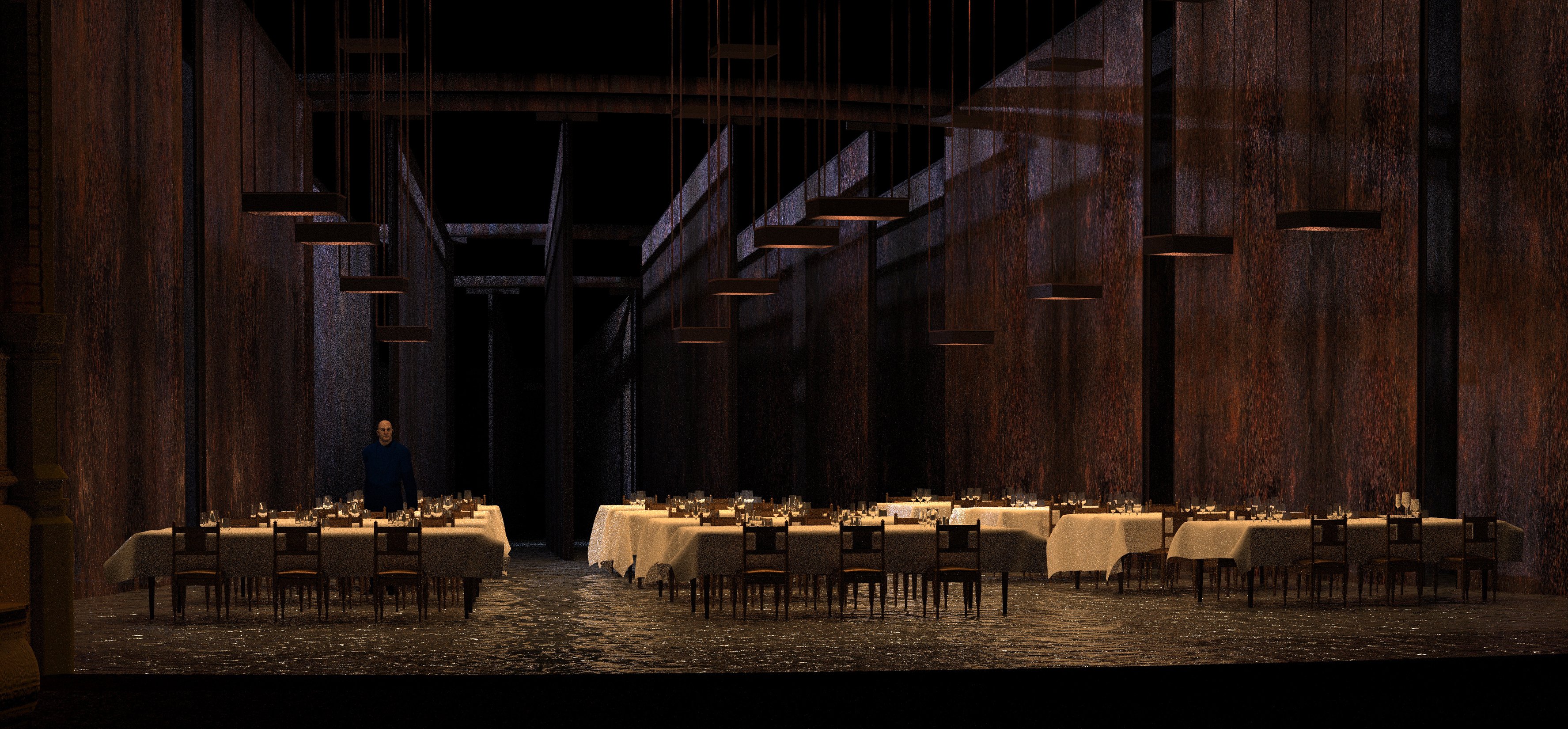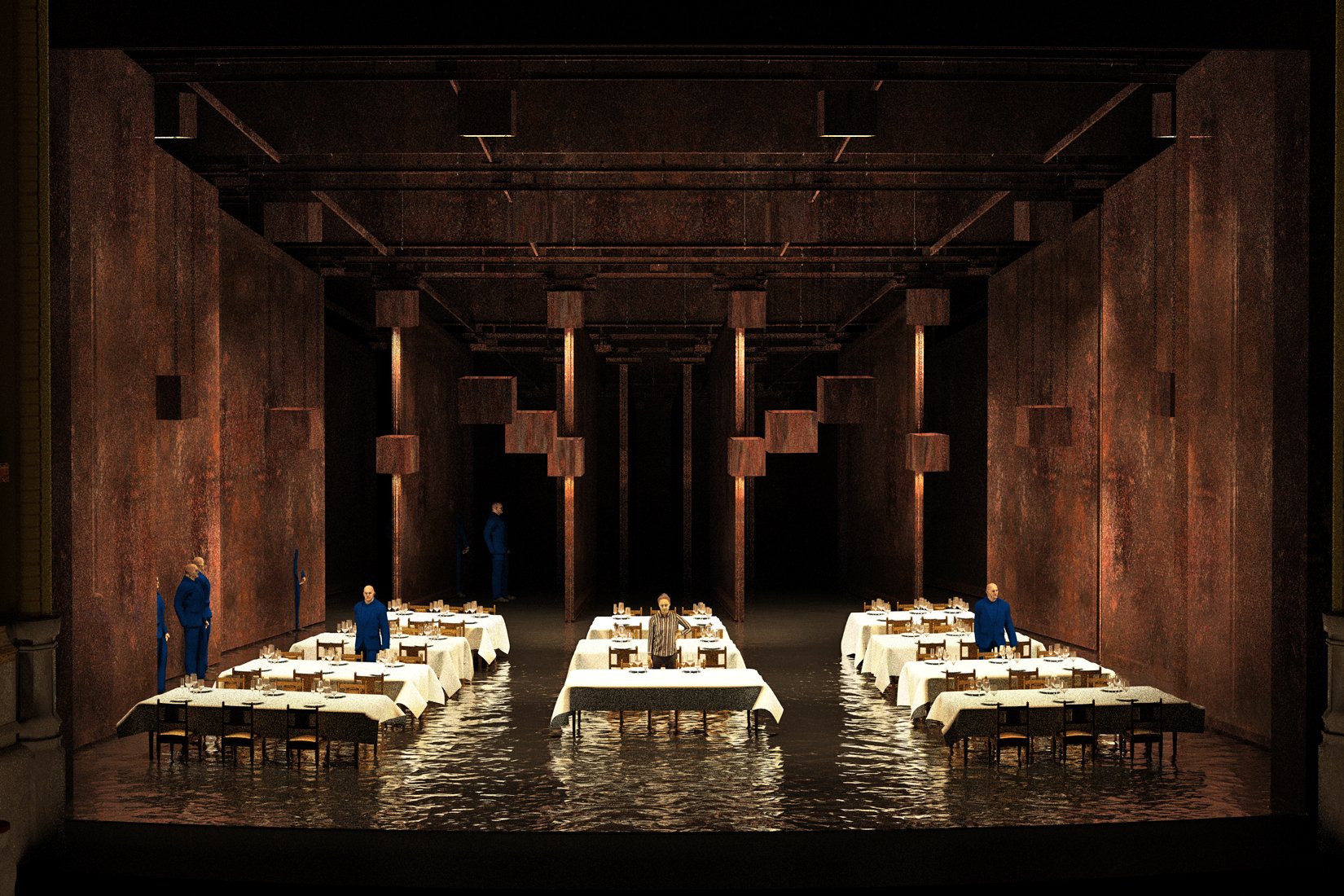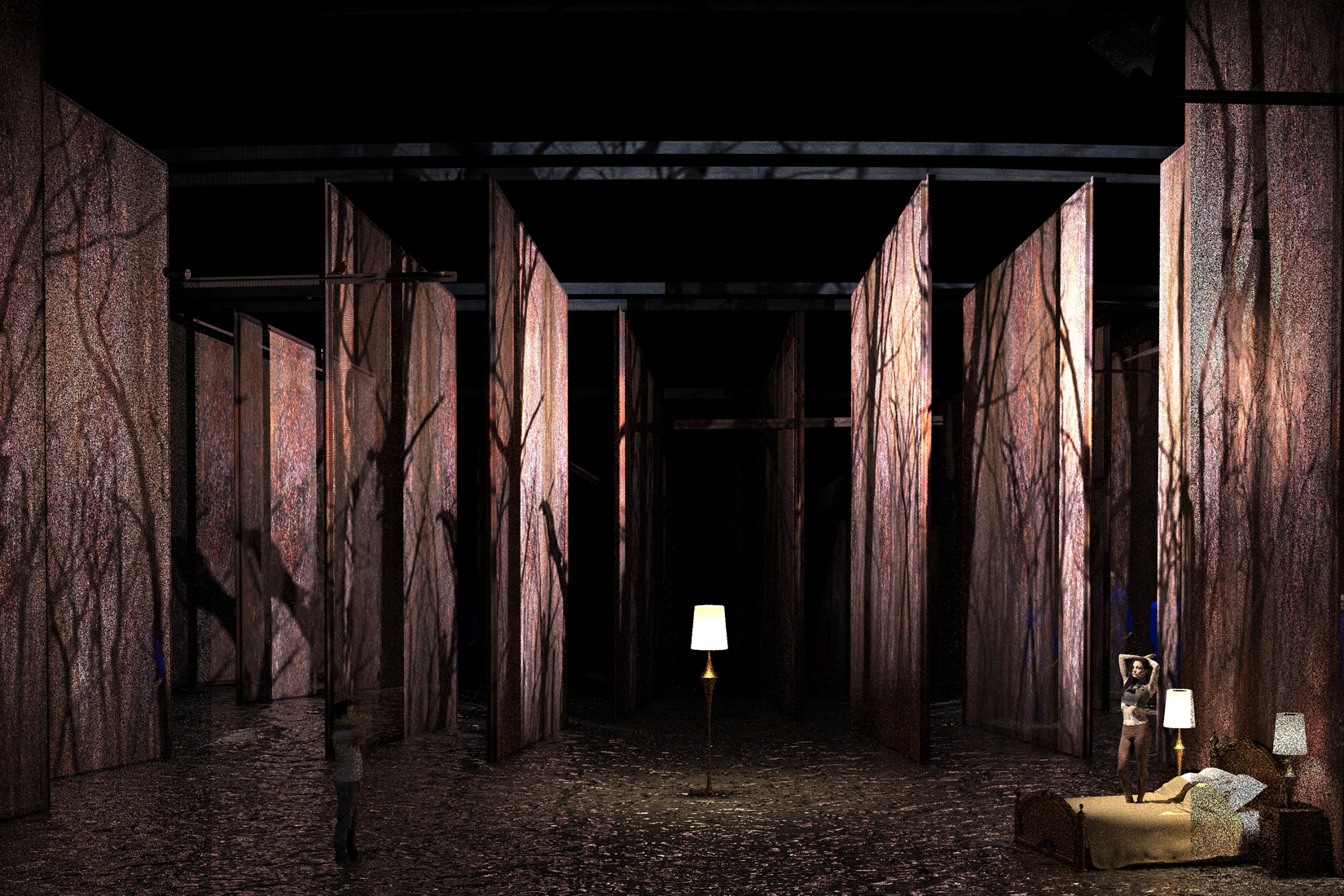
Premiered in 1934, Lady Macbeth received almost unanimous applause from Soviet critics as a modernist masterpiece, and shortly thereafter, it was performed in various cities across Europe and the United States. However, from January 1936, after Stalin attended a performance in Moscow, it was banned in the USSR for being an amoral, dissonant piece contrary to popular taste. The history of this work is deeply marked by the intervention of totalitarian power, which became the arbiter of artistic criteria.
Dmitri Shostakovich first read the novella Lady Macbeth of the Mtsensk District in the summer of 1930, several months after the premiere of The Nose, his first opera. At that time, he was searching for a story to continue his career as a composer of musical dramas, and Nikolai Leskov's cruel story made such an impact on him that he began working on the music and libretto on his own, without any commission.
Leskov's original story deals with the downfall of Katerina Ismailova, the wife of a provincial bourgeois who commits adultery to cope with her lonely and tedious life until her family and surroundings discover her secret. To avoid disgrace, she commits a series of murders – her father-in-law, her husband, a nephew – until the spiral of violence becomes uncontrollable. Captured by the police, Katerina is sentenced, along with her lover and accomplice Sergei, to forced labor in Siberia, where she meets her dark end.

«He read that his music 'screeched and growled and gasped'; that its 'nervous, compulsive, and spasmodic' character came from jazz; that the 'shriek' had replaced singing. The opera had clearly been scribbled for the 'effeminate' who had lost all 'healthy taste' for music and preferred a 'confused stream of sound.' As for the libretto, it deliberately focused on the most sordid parts of Leskov's tale: the result was 'coarse, primitive, and vulgar.' [...] That alone was enough to take his life.»
Julian Barnes, The Noise of Time, a novel inspired by the life of Shostakovich under Stalin's shadow

The Nose, inspired by a Gogol tale, had been a whimsical, very comical opera, but with Lady Macbeth of Mtsensk, Shostakovich wanted to delve into a socially themed story. Although Leskov made the moral content of his novella clear – Katerina is as evil as Shakespeare's Lady Macbeth, and her death is the just payment for her horrible actions – Shostakovich was not so sure that she was the absolute culprit of her misfortune. His version of the text – which he worked on with Aleksandr Preis, a collaborator on The Nose – reveals the idea that Katerina was a murderer but not a criminal, for at heart, she is a victim of a system that forces her to kill in self-defense.
After four years of work, Shostakovich premiered Lady Macbeth of Mtsensk in Leningrad in 1934, to great success. He used a musical language inspired by early 20th-century European modernism – with notable influences from the expressionism of Richard Strauss and Alban Berg – and the blend of tense instrumental passages, furious brass sections, and beautiful lyrical passages – especially in Katerina's soliloquies – convinced many critics that this was possibly the first great masterpiece of music in the young Soviet Union. The success of Lady Macbeth was not limited to the USSR – where it was performed simultaneously in Moscow and Leningrad – but reached Paris, Berlin, Vienna, London, and New York. At the age of 28, Shostakovich had established himself as one of the world's leading composers.
«Based on a novella by Nikolai Leskov, Lady Macbeth is the chronicle of a spiral of destruction, that of an adulterous woman who kills to escape an inevitable fate»
But it was precisely the resounding success of Lady Macbeth that precipitated his downfall. Since 1932, the political doctrine in the USSR was socialist realism imposed by the new leader, Joseph Stalin, who advocated for art to serve the working class, being simple and popular. In January 1936, Stalin attended a performance of the opera at the Bolshoi Theatre in Moscow, and on the 18th of that month, an editorial appeared in the government newspaper Pravda – the infamous Chaos Instead of Music – which labeled the opera as a formalist, bourgeois, immoral aberration, contrary to the principles of power. Being an editorial, it was not an individual critique but the opinion of the government – that is, Stalin – which placed Shostakovich in a dangerous position: although he was not arrested or executed, he was pressured to steer his composing style toward a less avant-garde approach.
Lady Macbeth of Mtsensk was banned in the USSR until 1963 – when it was re-premiered in a censored version, ten years after Stalin's death – and the original version was not performed again in Moscow until 2000. Its full and immense value lies not only in its moral ambiguity and daring composition but also in the symbolism of the catastrophic effect that totalitarian power had on modern art in the 20th century.


